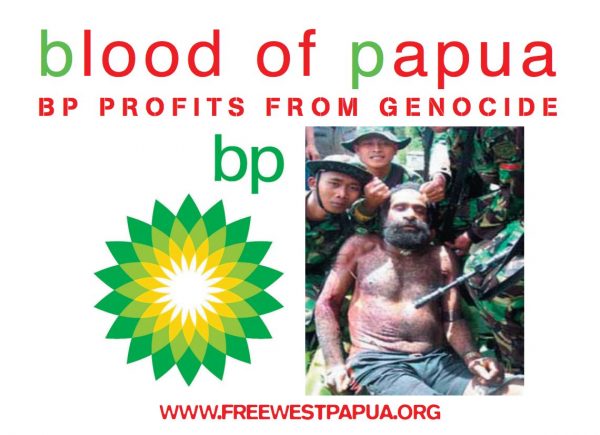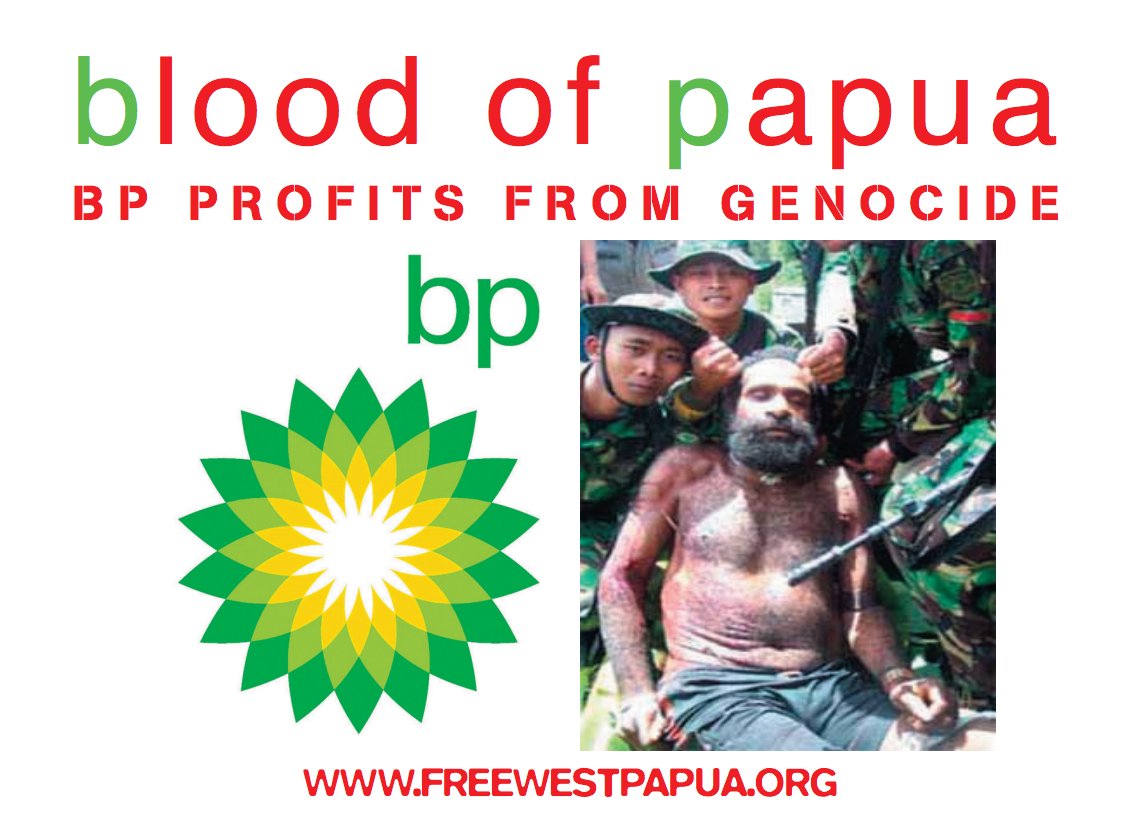
The Indonesian Government has developed strategies for avoiding international criticism over its appalling human rights record in West Papua. One strategy is to keep the outside world out and ensure that approved visitors such as journalists and diplomats are carefully guided and get to meet with the ‘right’ people. With variations this technique has served Indonesia well since it took over the territory back in 1963.
However, this strategy is not working out so well just now. It is the digital age and you can’t arrest thousands of people; a record –breaking two thousand in May and over one thousand in June- and hope the word won’t get out. In May the arrested demonstrators were videoed as they were herded into a police compound, stripped to the waist and forced to stay for hours under the burning sun. What was their offence? The peaceful demonstrators were simply carrying placards supporting international initiatives such as the drive to have the United Liberation Movement of West Papua (ULMWP) recognised as a full member of the Melanesian Spearhead Group (MSG). That would be an important step-up from the current ULMWP status as an MSG observer.
The Solomon Islands envoy in Geneva, Barrett Salato, gave a moving address recently to the United Nations Human Rights Council in which he drew attention to the arrests. He also backed the call (endorsed by the International Parliamentarians for West Papua and others) for an internationally supervised referendum so that the people could choose whether or not they want to stay with Indonesia. The Vanuatu delegate joined Mr Salato in calling for Indonesia to allow both the UN Rapporteur on Freedom of Expression and a Pacific Islands Forum fact finding mission to visit.
Indonesia has also perfected a distraction strategy – ‘nothing to see there – look here instead’. The Minister for Political and, Security Affairs, Luhut Pandjaitan, is on this tack. He has appointed a new team to investigate historic human rights abuses. The move is controversial and a number of Church and human rights leaders are opposed to Pandjaitan’s initiative because, as one pointed out, ‘the state can’t judge the state’. Indonesia’s Human Rights Commission (Komnas Ham) has turned down the invitation to take part, saying it prefers to maintain its independence. Undeterred, Minister Pandjaitan took a small group of regional Ambassadors, including the New Zealand Ambassador, Trevor Matheson, on his latest visit to West Papua to promote his plan.
Thus far we don’t know what our Ambassador made it of it all. Luhut Pandjaitan has been careful to emphasise that these Ambassadors were not on a ‘fact-finding mission’, so it is unlikely that the Ambassadors saw any sign of dissent or met any activists.
In the early 1960s the people of West Papua were looking forward to eventual independence and the Dutch colonial administration was working on training administrators and handing over some legislative control. Many hoped for eventual union with the other half of New Guinea Island, today’s Papua New Guinea. New Zealand supported these plans until 1962 when the US brokered an Agreement between the Dutch and Indonesia which handed control of the territory to Indonesia. It was effectively a western-sanctioned land grab and the West Papuans were not consulted. There was a ‘safety valve’ in the form of a so-called Act of Free Choice to be held in 1969.
The 1969 exercise was an absolute shocker and everybody involved, including the tiny UN team present at the time, knew it. There were a series of stage-managed ‘consultative assemblies’ or ‘musjawarah’. Just over a thousand people took part in the final ‘vote’ and they were isolated under armed guard beforehand and threatened with torture and death should they ‘vote’ for any choice other than staying with Indonesia. None did.
The New Zealand Ambassador of the time attended a couple of the assemblies and reported on ‘the questionable morality’ of the whole exercise. New Zealand and other western nations voted at the UN to endorse a process they knew was wrong because they wanted to stay on side with anti-communist Indonesia.
The New Zealand public had to wait for documents to be declassified to know what our Ambassador thought of this exercise. But journalists and editorial writers did not hang back. After the first two assemblies had been held the Melbourne paper The Herald was moved to comment ‘even Hitler was satisfied with less than one hundred per cent in plebiscites.’
It is time that New Zealand recognised the obvious – Indonesia’s repressive rule has not extinguished West Papuan aspirations for freedom. We turned our backs on the people fifty years ago, but we have the chance to do better now. We could start by backing the call for a Pacific fact-finding mission and urging Indonesia to stop arresting peaceful demonstrators.
Maire Leadbeater – West Papua Action Auckland






Is the Australian Government covertly supporting genocide?
http://statecrime.org/data/2012/10/Lasslett-K-State-Crime-by-Proxy.pdf
Comments are closed.